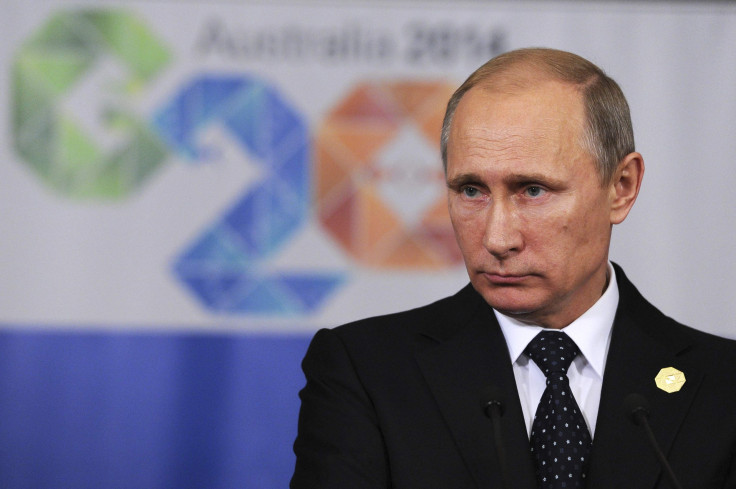Russian Recession 2014: Putin’s Popularity At Home, Not Sanctions, Will Change His Course In Ukraine

Economic sanctions put on Russia by Western nations in recent months have cost the country $40 billion and, alongside plummeting oil prices, have edged Russia toward a recession. But Russian President Vladimir Putin's government shows no signs of halting its ongoing involvement in neighboring Ukraine, largely because such policies have proven wildly popular with the Russian public. Until that changes, the Russian government will likely maintain its course despite growing economic pressures.
“It depends how long it will take before the public gets fed up,” said Jeffrey Mankoff, deputy director of the Russia and Eurasian program at the Center for Strategic and International Studies. “It’s hard to really tell at this point because there have been so many mixed signals. On one hand, there’s been rhetoric that they won’t bow to foreign pressure, but then on the other hand, we see Putin and his colleagues saying they want negotiations to end conflict.”
Russian state economists on Tuesday said Russia’s economy is expected to shrink by 0.8 percent in 2015. It would be the first recession for Russia since 2009. Only 40 percent of Russian’s feel optimistic about the economy, but Putin remains overwhelmingly popular with Russians. His approval ratings as of last week were at 85 percent, down from a record high of 88 percent in September.
His popularity tends to spike when he makes bold moves, according to the Telegraph. Putin’s ratings skyrocketed from an all-time low of 61 percent in November of last year to thier current high mark after Russia allegedly began supporting pro-Russian separatists in Ukraine’s east, annexed Crimea in southern Ukraine and bucked Western sanctions.
The sanctions were enacted over three major rounds in March, April and July of this year. The first round mostly targeted Putin's inner circle of political allies and business allies. The United States, European Union and their allies froze these individuals' bank accounts and blocked their travel. The second round expanded that list of individuals. The third round in July had the most significant impact: It restricted transactions by the five largest banks in Russia and blocked transactions by defense firms and energy firms.
By September, Maksim Oreshkin, head of Russia's Finance Ministry, predicted the sanctions could cost Russia up to 2 percent of its GDP by year-end. A U.S. State Department official said Secretary of State John Kerry will discuss further sanctions with his EU counterparts this week.
Russian officials are pressing their European and American counterparts to drop the sanctions in the interest of the world economy. Russia is Europe’s largest supplier of energy, and some EU representatives share the concern that more sanctions would plunge their own states into economic trouble.
Bowing to Western pressure would be “completely inconceivable” for Putin, Eurasia Group President Ian Bremmer said on CNBC’s “Squawk Box” on Tuesday. “This is what is behind all his approval ratings,” he said. “It’s behind who he now is as a leader.”
In fact, with falling oil prices having more than twice the negative economic impact on Russia’s economy compared with the sanctions, Putin and his government may try to shore up their popularity by diving further into the Ukraine crisis, according to Bremmer: “I think that lower oil prices simply squeeze him harder, pushing him further into a corner.... He feels he has to fight as a consequence.”
In recent months, Putin has made moves to diversify Russia's business abroad to countries outside of the EU. He signed a gas deal with China in early November and signed a gas deal with Turkey Monday that would route the controversial South Stream gas pipeline away from EU states siding with their bloc's sanctions. Russia played it as a loss for Europe, indicating that even if the sanctions continue to have an effect on its economy, Putin won't back down.
© Copyright IBTimes 2024. All rights reserved.






















